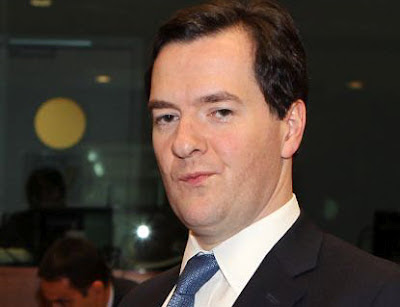 |
| Only in the financial sector could a key player in organised criminal activity like Jerry Del Missier expect to be allowed to walk away from the crime scene with a multi-million payoff. |
In July 2012 it was revealed that disgraced former chief operating officer at Barclays Jerry Del Missier had been allowed to walk away from the company with an £8.75 million payoff. In the banking world massive financial rewards for failure are commonplace, but De Misser's payoff isn't just a reward for failure, it is a reward for outright criminality.
De Misser was forced to resign after it was revealed that he was the highest ranking Barclays employee to explicitly instruct staff at the bank to fraudulently manipulate the Libor inter bank lending rate. The bank was fined £290 million by regulators in the US and UK and now faces the possibility of defending dozens of £multi-million civil lawsuits brought by investors and other financial institutions as well as the possibility of facing criminal proceedings in jurisdictions where they have not bought themselves immunity from prosecution.
It is quite incredible to see a guilty party leaving the crime scene with a multi-million pound payoff, something that could only happen in the world of high finance. Had the crime been drug dealing, benefit fraud, VAT fraud or illicit arms dealing, does anyone believe that one of the key players would be allowed to simply walk away with such a vast payoff?
One of the most shocking aspects to the Libor fixing scandal is that Barclays were originally founded as an ethical Quaker bank. For those of you that don't know much about Quakerism, there are no hard and fast rules but the religion was founded on a platform of egalitarianism, abstinence and an opposition to gambling. Barclays and the numerous other small Quaker banks it subsumed were originally founded in order to provide credit to ethical enterprises. As the bank became ever larger and further separated from it's historical roots, the baggage of ethical consideration was jettisoned in the pursuit of ever bigger profits.
 The warning signs that the Quakers had inadvertently spawned an amoral monster were there from as early as the 1980s, when Barclays were one of the few UK based financial institutions to completely ignore the boycott of apartheid South Africa, earning them the nickname "Boerclays".
The warning signs that the Quakers had inadvertently spawned an amoral monster were there from as early as the 1980s, when Barclays were one of the few UK based financial institutions to completely ignore the boycott of apartheid South Africa, earning them the nickname "Boerclays". In 1997 De Missier and Bob Diamond were two of the key players in the formation of Barclays Capital, the casino banking wing of the institution. It is hugely ironic that a bank originally founded by people with a strong ethical objection to gambling went on to become one of the biggest players on the global banking casino. If it wasn't bad enough that an ethically founded institution became a big player in the world of financial sector gambling, they also set about deliberately defrauding the global casino by manipulating the Libor rate.
Barclays are far from the only criminal institution in the UK financial sector, RBS and Lloyds are also being investigated for rigging Libor rates and HSBC have recently been caught laundering money for drugs cartels. However it seems these institutions and their employees have little to fear. A fine that is orders of magnitude smaller than the profits they made from their criminal activities, multi-million pound payoffs for guilty parties and no threat of criminal prosecutions would be the worst they could expect in the current climate. If the UK authorities do not bring criminal charges, lock up some corrupt bankers and begin confiscating their ill gotten gains, this will send a signal that there is absolutely no deterrent to financial sector corruption and criminality in the UK and bankers will continue to behave like a bunch of corrupt, amoral criminals.
The UK should follow the example set by Iceland, a nation that refused to assume the odious debts of their neoliberalised financial sector and have hired a team of international bounty hunters to track down the corrupt bankers that destroyed their economy. The problem is of course, that the financial sector have a de facto controlling interest in the Tory party, meaning that the Tories will do absolutely anything within their powers to protect the interests of the criminals that operate out of the deregulated, neoliberalised London banking casino.
See Also











